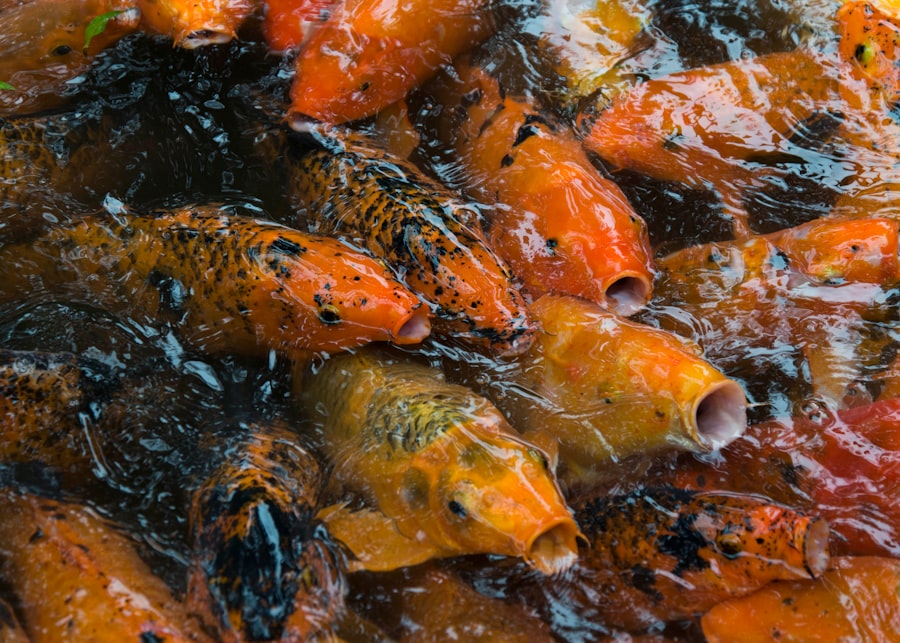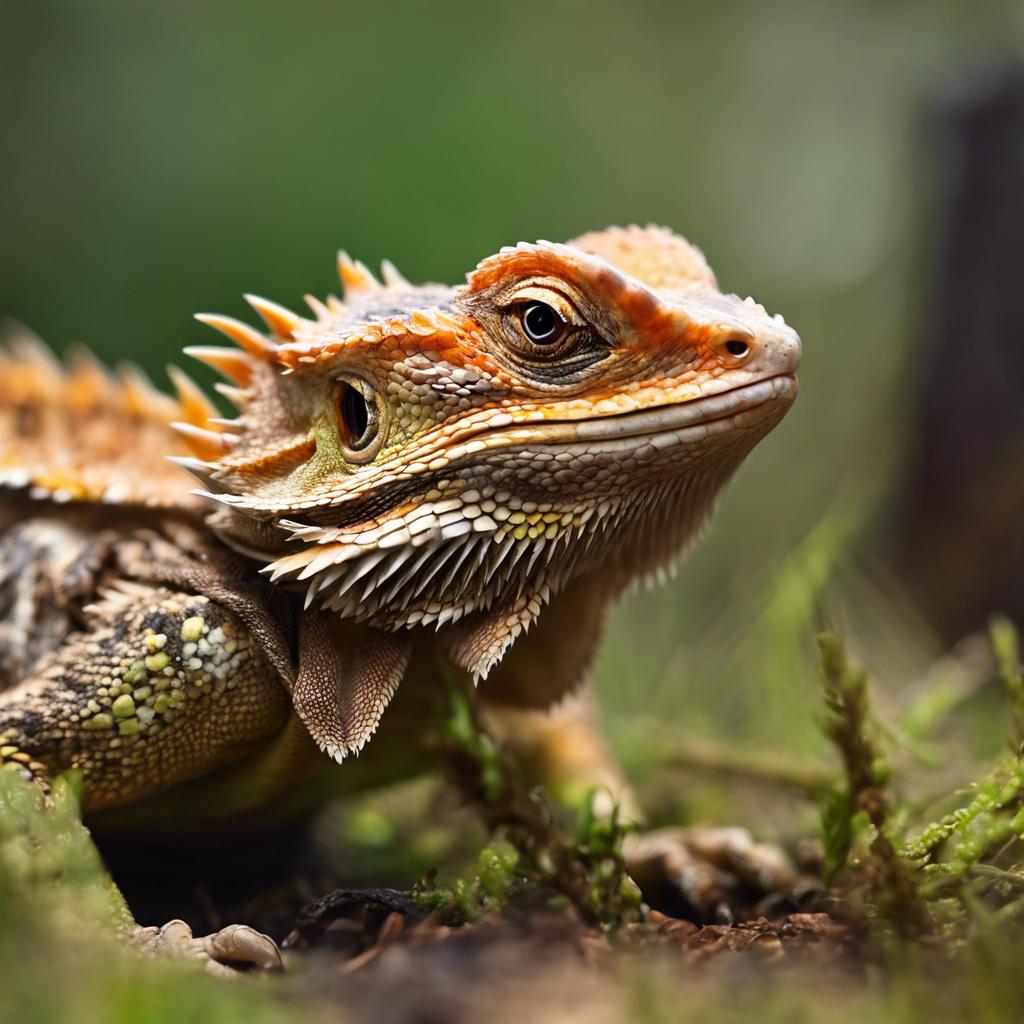Bearded dragons are popular reptile pets known for their unique appearance and docile nature. These reptiles require a specific diet and care to ensure their health and well-being. Providing a balanced and nutritious diet is crucial for the overall health of bearded dragons. In this article, we will explore the possibility of feeding frogs to bearded dragons, discussing the nutritional value of frogs, the risks and dangers associated with feeding them, and alternative protein sources. It is important to make informed decisions about the diet and care of bearded dragons to ensure their longevity and happiness.
Key Takeaways
- Bearded dragons require a balanced diet that includes a variety of insects, vegetables, and fruits.
- While frogs can provide some nutritional value for bearded dragons, they also pose risks such as parasites and toxins.
- Alternatives to feeding frogs include crickets, mealworms, and vegetables such as kale and squash.
- Before feeding frogs, consider factors such as the size and age of the bearded dragon and the source of the frogs.
- Signs of digestive issues in bearded dragons include lethargy, loss of appetite, and diarrhea, and should be addressed promptly by a veterinarian.
Can Bearded Dragons Eat Frogs? Exploring the Possibility
One common question that arises when it comes to bearded dragon diet is whether or not they can eat frogs. While bearded dragons are omnivorous and can consume a variety of foods, including insects, fruits, vegetables, and even small mammals, the question of whether they can eat frogs is a bit more complex.
There is some debate among reptile enthusiasts and experts about whether or not bearded dragons can safely consume frogs. Some argue that frogs can provide a source of protein for bearded dragons, while others believe that frogs may pose health risks due to potential toxins or parasites they may carry. It is important to consider both sides of the argument before making a decision about feeding frogs to your bearded dragon.
Nutritional Value of Frogs for Bearded Dragons
Frogs are a good source of protein and can provide essential nutrients for bearded dragons. They are rich in vitamins such as vitamin A, vitamin B12, and vitamin D, as well as minerals like calcium and phosphorus. These nutrients are important for the growth and development of bearded dragons.
When comparing the nutritional content of frogs to the dietary needs of bearded dragons, it is clear that frogs can be a beneficial addition to their diet. However, it is important to note that the nutritional needs of bearded dragons can vary depending on their age, size, and overall health. It is always best to consult with a veterinarian who specializes in reptiles to ensure that your bearded dragon is receiving the proper nutrition.
Risks and Dangers of Feeding Frogs to Bearded Dragons
While frogs can provide nutritional benefits for bearded dragons, there are also potential risks and dangers associated with feeding them. One of the main concerns is the potential for toxins or parasites that frogs may carry. Some species of frogs secrete toxins as a defense mechanism, which can be harmful or even fatal to bearded dragons if ingested.
Additionally, wild-caught frogs may carry parasites that can infect bearded dragons. These parasites can cause digestive issues, infections, or other health problems. It is important to thoroughly research and understand the potential risks before introducing frogs into your bearded dragon's diet.
Alternatives to Feeding Frogs to Bearded Dragons
If you decide that the risks associated with feeding frogs to your bearded dragon outweigh the potential benefits, there are alternative protein sources that can be included in their diet. Insects such as crickets, mealworms, and dubia roaches are commonly fed to bearded dragons and provide a good source of protein.
In addition to insects, bearded dragons can also consume fruits and vegetables as part of their diet. Leafy greens like kale, collard greens, and dandelion greens are rich in vitamins and minerals and can be offered as a staple food for bearded dragons. Fruits such as berries, melons, and apples can also be given as occasional treats.
Bearded Dragon Care: Factors to Consider Before Feeding Frogs

Before introducing frogs into your bearded dragon's diet, there are several factors that should be considered. First and foremost, it is important to consult with a veterinarian who specializes in reptiles. They can provide guidance and advice based on the specific needs of your bearded dragon.
It is also important to consider the age and size of your bearded dragon. Younger dragons may have different dietary needs than adults, and their digestive systems may not be able to handle certain foods. Additionally, the size of the frog should be appropriate for the size of your bearded dragon to prevent choking or other digestive issues.
How to Prepare Frogs for Bearded Dragon Consumption
If you have decided to feed frogs to your bearded dragon and have taken all necessary precautions, it is important to properly prepare the frogs before offering them as food. This includes thoroughly cleaning the frogs to remove any potential toxins or parasites.
To prepare frogs for bearded dragon consumption, start by thoroughly washing them with water to remove any dirt or debris. It is also recommended to soak them in a reptile-safe disinfectant solution for a few minutes to further eliminate any potential pathogens. Rinse the frogs again with water before offering them to your bearded dragon.
Bearded Dragon Feeding Tips: Dos and Don'ts When Feeding Frogs
When feeding frogs to your bearded dragon, there are several dos and don'ts that should be followed.
Do:
– Offer frogs as a treat rather than a staple food.
– Ensure that the frogs are properly prepared and free from toxins or parasites.
– Monitor your bearded dragon's behavior and health after introducing frogs into their diet.
– Consult with a veterinarian if you notice any changes in your bearded dragon's appetite, digestion, or overall health.
Don't:
– Feed wild-caught frogs to your bearded dragon, as they may carry parasites or toxins.
– Overfeed frogs or make them a significant portion of your bearded dragon's diet.
– Ignore any signs of digestive issues or health problems in your bearded dragon.
Signs of Digestive Issues in Bearded Dragons and How to Address Them
Digestive issues can occur in bearded dragons for a variety of reasons, including an improper diet or the introduction of new foods. It is important to be aware of the signs of digestive issues and address them promptly to prevent further complications.
Signs of digestive issues in bearded dragons may include loss of appetite, diarrhea, constipation, bloating, or regurgitation. If you notice any of these symptoms, it is important to consult with a veterinarian who specializes in reptiles. They can provide guidance on how to address the issue and may recommend dietary changes or medication if necessary.
Making Informed Decisions About Bearded Dragon Diet and Care
In conclusion, providing a balanced and nutritious diet is crucial for the health and well-being of bearded dragons. While frogs can provide a source of protein and essential nutrients, there are potential risks and dangers associated with feeding them to bearded dragons. It is important to make informed decisions about their diet and consult with a veterinarian who specializes in reptiles.
If you decide that feeding frogs to your bearded dragon is not the best option, there are alternative protein sources that can be included in their diet. Insects such as crickets, mealworms, and dubia roaches are commonly fed to bearded dragons and provide a good source of protein. Additionally, fruits and vegetables can be offered as part of their diet.
By understanding the nutritional needs of bearded dragons and considering the potential risks and benefits of different foods, you can ensure that your pet is receiving the proper care and nutrition they need to thrive.
If you're wondering whether a bearded dragon can eat a frog, you might also be interested in learning about the types of food that are safe for them to consume. Reptile Wizard has a helpful article on their website that explores the question, “Can Bearded Dragons Eat Black Olives?” This informative piece discusses the nutritional value of black olives and whether they are suitable for bearded dragons to include in their diet. To find out more about this topic, you can check out the article here.
FAQs
Can a bearded dragon eat a frog?
Yes, bearded dragons are known to eat frogs in the wild.
Is it safe for a bearded dragon to eat a frog?
It is generally safe for a bearded dragon to eat a frog as long as the frog is not poisonous and is properly prepared.
What kind of frogs can bearded dragons eat?
Bearded dragons can eat non-poisonous frogs such as tree frogs, bullfrogs, and leopard frogs.
How should a frog be prepared for a bearded dragon to eat?
The frog should be gut-loaded with nutritious food and dusted with calcium powder before being offered to the bearded dragon.
Can eating frogs be harmful to a bearded dragon?
Eating frogs that are poisonous or contaminated with pesticides or other toxins can be harmful to a bearded dragon.
Should bearded dragons be fed frogs regularly?
No, frogs should not be a regular part of a bearded dragon's diet. They should be offered as an occasional treat. A balanced diet of insects, vegetables, and fruits is recommended for bearded dragons.

